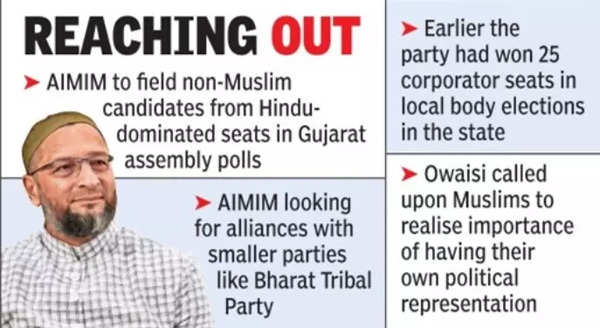
The hijab issue emerged in January 2022 when several Muslim students were barred from attending classes at the Government Pre-University College in Udupi for wearing hijabs. This incident quickly escalated into a broader conflict, as students and their families protested against what they viewed as discriminatory practices. Demonstrations spread across the state, with various political parties taking sides, further polarizing the situation.
Karnataka's High Court intervened, ultimately ruling that the wearing of hijabs is not an essential religious practice, a verdict that incited mixed reactions. While some welcomed the judgment as a necessary measure for maintaining uniformity in schools, others criticized it as an infringement on religious rights. The AIMIM leaders, who had been vocal in support of the students’ rights, were initially charged with inciting communal unrest. However, state authorities have now opted to withdraw these charges, citing a lack of evidence to substantiate claims of incitement against the AIMIM leaders.
This development comes as part of a broader effort by Karnataka’s political leadership to manage communal tensions and restore peace within educational environments. Notably, cases against Hindu students accused of participating in counter-protests and other disruptive activities remain active, indicating an ongoing investigation into their actions during the hijab protests. This selective approach to handling the cases has raised questions about the criteria used to differentiate between participants in the protests, leading to allegations of bias and discrimination.
Political reactions to the Karnataka government's latest decision have varied significantly. AIMIM leader Asaduddin Owaisi praised the move, asserting it as a victory for justice and civil rights. He emphasized the importance of protecting the rights of all students, regardless of their religious beliefs, while condemning the actions that led to the initial charges. In contrast, leaders from the ruling Bharatiya Janata Party (BJP) defended the continued pursuit of cases against Hindu students, framing it as necessary to uphold law and order within the state.
Amidst this backdrop, educational institutions in Karnataka are grappling with the ramifications of the hijab controversy. Many schools and colleges are implementing policies aimed at preventing such disputes in the future, with some institutions considering dress codes that promote inclusivity while respecting cultural and religious diversity. However, these measures have not been universally accepted, as debates continue about the balance between individual rights and institutional policies.
The hijab controversy also highlights broader societal trends regarding religious identity and political expression in India. Analysts note that the incident reflects increasing polarization along religious lines, exacerbated by the current political climate. The handling of the hijab issue has become a litmus test for how various parties engage with minority rights and religious freedoms, with significant implications for future electoral strategies.
The ramifications of the hijab case extend beyond Karnataka, as it resonates with similar debates across the country. The question of religious attire in educational settings is not confined to Karnataka, with various states witnessing disputes over similar issues. The outcomes of these cases could set precedents that may influence legal interpretations of religious freedoms and the rights of students across India.
Karnataka's decision to clear AIMIM leaders while pursuing cases against Hindu students may set the stage for a protracted legal battle as those affected seek to challenge the state's stance. Legal experts suggest that the next steps will involve a thorough examination of the evidence presented by both sides, with the potential for appeals and further legal scrutiny. The current situation remains fluid, with stakeholders closely monitoring developments and preparing for possible ramifications in upcoming elections.
